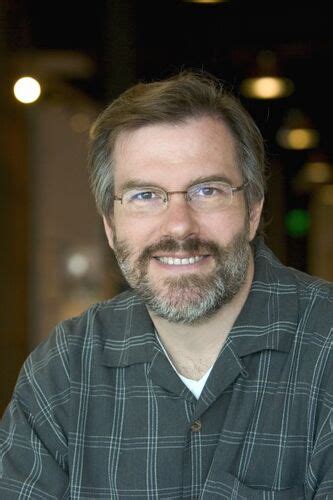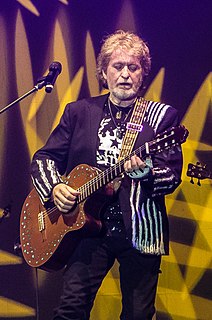A Quote by Mija
It's taken a while for me to figure out my sound. It's tough, coming from DJing, because you know how things are supposed to sound, but you also don't want to be formulaic about it.
Related Quotes
I think, when you're a young composer, you're told constantly that what you're supposed to do is figure out what your voice is. "What is your thing supposed to sound like?" You know: "What's the thing you do," that everyone can recognizably tell from a long distance is you and then you're supposed to be in search of that marker and you're supposed to find it and you're supposed to live there for the rest of your life. And it seemed to me, from a young age, that was what I was encouraged to do. You find a sound and that's your sound! That's what you do.
Think of the sound you make when you let go after holding your breath for a very, very long time. Think of the gladdest sound you know: the sound of dawn on the first day of spring break, the sound of a bottle of Coke opening, the sound of a crowd cheering in your ears because you're coming down to the last part of a race--and you're ahead. Think of the sound of water over stones in a cold stream, and the sound of wind through green trees on a late May afternoon in Central Park. Think of the sound of a bus coming into the station carrying someone you love. Then put all those together.
When we sit in meditation and hear a sound, we think, 'Oh, that sound's bothering me.' If we see it like this, we suffer. But if we investigate a little deeper, we see that the sound is simply sound. If we understand like this, then there's nothing more to it. We leave it be. The sound is just sound, why should you go and grab it? You see that actually it was you who went out and disturbed the sound.
There's no excuse for having a mental or creative block in sound. You can just go out and collect things in the real world - they make the sound, not you. It's very restricting to always use a library for sound effects. It's much more interesting and freeing to go out and record new sounds because you never know what you're going to get.
I generally go into a movie with a very strong vision, with how I want to make the film, how I want to shoot the film, how I want to edit the movie, what I want the sound to sound like. So I have a very concrete idea even if I don't storyboard it, I know exactly what I want to do once I get into the sequence. Now having said that, I try not to let that slave me to the process. So if I do storyboard a sequence I don't necessarily stick to it if I discover more exciting things on set.
I'm very interested in vertical space.I want the players to listen to their sound in such a way that they hear the complete sound they make before they make another one. So that means that they hear the tail of the sound. Because of the reverberation, there's always more to the sound than just the sound.
I have a brilliant sound design team who's been working with me since 'Mr. Robot,' and one of the things we always think about - and it's also something we think about with cinematography - is how we get inside the characters' heads and how do we place the audience where we want them to be or how we want them to feel at any given moment.



































